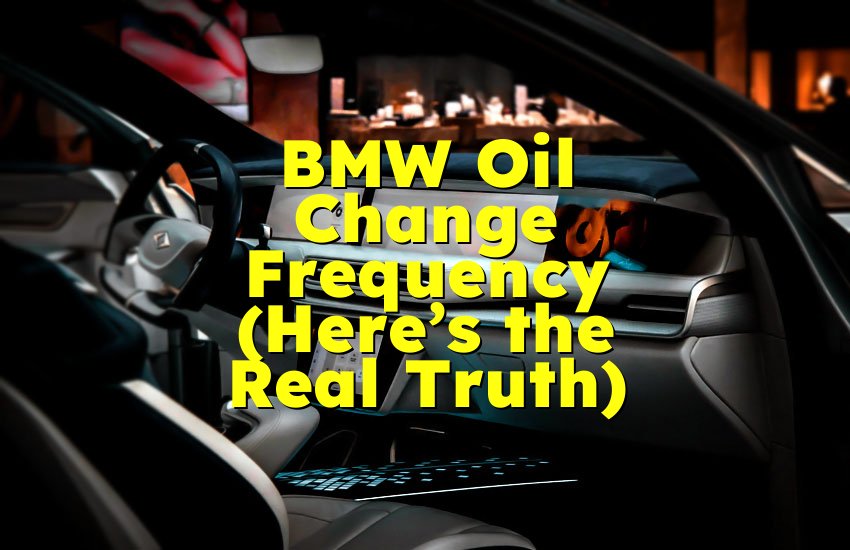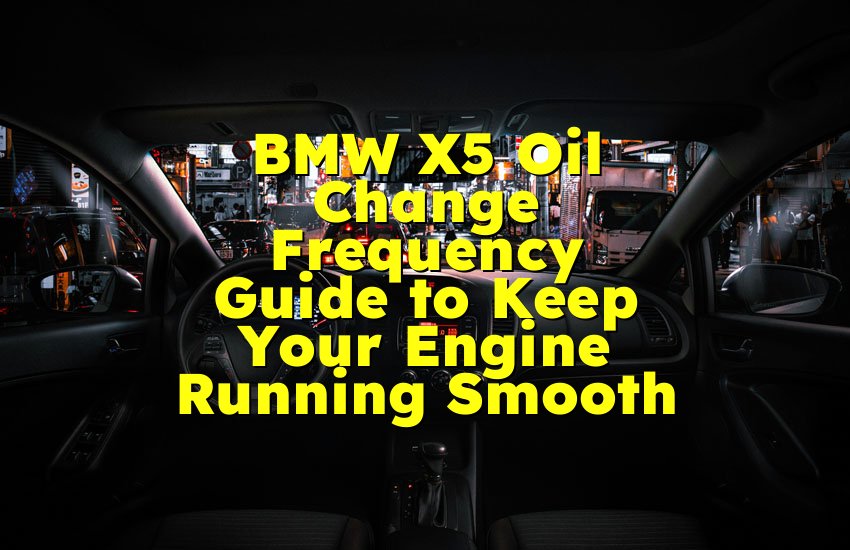As an Amazon Associate, I earn from qualifying purchases at no extra cost to you.
Car Shaking On Cold Start: Discover the Troubleshooting Secrets
If your car shakes on cold start, it could be due to engine misfires or fuel delivery issues. Addressing these problems promptly can prevent further damage and ensure smooth operation when starting your vehicle in the cold.
Cold weather can exacerbate underlying issues, so it is crucial to diagnose and fix the problem before it escalates. Seeking professional help from a mechanic to accurately diagnose and resolve the shaking can help extend the life of your vehicle and prevent costly repairs down the line.
Ignoring the issue may lead to more severe damage, so taking action early is key to keeping your car running smoothly in all weather conditions.
Common Causes Of Car Shaking On Cold Start
A car shaking on cold start can be a concerning issue that many car owners face. Understanding the common causes of this problem can help you diagnose and resolve it effectively.
Faulty Spark Plugs
One of the common causes of car shaking on cold start is faulty spark plugs. Spark plugs play a crucial role in igniting the air-fuel mixture in the engine, and when they are worn or malfunctioning, it can lead to misfires and vibrations.
Low Fuel Pressure
Another common culprit behind car shaking on cold start is low fuel pressure. Inadequate fuel pressure can result in an improper fuel-air ratio, causing the engine to run rough and shake during startup.
Dirty Air Filter
A dirty air filter can also contribute to car shaking on cold start. When the air filter is clogged or dirty, it restricts the airflow to the engine, affecting the combustion process and leading to engine vibrations.
Understanding The Impact Of Cold Weather On Car Performance
When winter sets in, cold weather can have a significant effect on how your car functions. From the engine to the battery, various components are impacted by the drop in temperature. One common issue car owners may encounter is car shaking on cold start. Let’s delve deeper into how cold weather influences car performance.
Effects On Engine Oil Viscosity
Cold temperatures cause the oil in your car’s engine to thicken, leading to increased viscosity. This change can make it harder for the oil to circulate smoothly throughout the engine, resulting in poor lubrication. As a result, your engine may experience increased friction and wear, leading to potential damage over time.
Impact On Battery Performance
Low temperatures can reduce the ability of your car’s battery to generate electricity effectively. This can result in sluggish engine starts and potentially lead to car shaking upon ignition. Additionally, cold weather can cause the chemical reactions within the battery to slow down, further impairing its performance.
Troubleshooting Steps For Car Shaking On Cold Start
If your car is experiencing shaking on cold start, it can be a concerning issue. This shaking can be a result of various factors, including problems with the ignition, fuel system, or other components. To effectively troubleshoot and address these issues, it’s essential to follow a systematic approach. In this article, we will guide you through the troubleshooting steps for car shaking on cold start, helping you pinpoint the root cause and resolve the issue.
Diagnostic Obd-ii Scan
Performing a diagnostic OBD-II scan is the first step in identifying potential issues causing the car to shake on cold start. This scan will help to retrieve trouble codes stored in the vehicle’s computer system, providing valuable insights into the specific areas requiring attention. By utilizing an OBD-II scanner, you can access valuable diagnostic information to help guide your troubleshooting process.
Checking Ignition Components
The ignition system plays a crucial role in the smooth operation of your vehicle. When experiencing shaking on cold start, it’s imperative to inspect the ignition components, including the spark plugs, ignition coils, and ignition wires. Thoroughly examining these components for signs of wear, damage, or malfunction can help in identifying potential causes of the shaking issue.
Inspecting Fuel System
The fuel system is another critical area to assess when troubleshooting car shaking on cold start. Check for any clogs, leaks, or malfunctions within the fuel system, including the fuel injectors, fuel filter, and fuel pump. By meticulously inspecting these components, you can identify and address any fuel-related issues contributing to the shaking problem.

Credit: www.amazon.com
Preventative Maintenance To Address Cold Start Issues
Preventative maintenance plays a crucial role in keeping your car running smoothly, especially during cold starts. Cold start issues can be frustrating, causing your car to shake and sputter, making every morning feel like a struggle. However, by following some simple preventative maintenance steps, you can address these issues and ensure a smooth and reliable start every time.
Regular Oil Changes
One of the most important preventative maintenance tasks for addressing cold start issues is regular oil changes. Clean and fresh oil helps lubricate the engine components, reducing friction and ensuring the engine starts smoothly. Over time, oil becomes contaminated with dirt, debris, and sludge, which compromises its effectiveness. Gradually, this can lead to sluggish starts and even engine damage. By adhering to the recommended oil change schedule specified by your car’s manufacturer, you can minimize the risk of experiencing cold start issues.
Using High-quality Fuel
The quality of fuel you use can also have a significant impact on cold start issues. Low-quality fuel may contain impurities and moisture, which can cause fuel system components to malfunction, leading to rough starts. It’s essential to choose a reputable gas station that consistently provides high-quality fuel. Additionally, consider using a fuel additive or injector cleaner periodically to keep the fuel system clean and prevent any build-up that could hinder your car’s performance during cold starts.
Scheduled Battery Checks
Your car’s battery plays a vital role in starting the engine, especially in cold weather conditions. A weak or failing battery can struggle to deliver the required power, resulting in a shaky and unreliable start. To prevent such issues, schedule regular battery checks to ensure it’s in good condition. Check for any corrosion or loose connections, and have the battery tested to measure its overall health. If necessary, consider replacing an old or weak battery with a new one to avoid cold start problems.
Professional Help And Maintenance Services
Easily resolve car shaking on cold start issues with professional help and maintenance services. Ensure a smooth and reliable driving experience by addressing this common problem with expert assistance and regular vehicle maintenance. Prevent potential car issues and maintain optimal performance through professional support and maintenance services.
Seeking Expert Mechanic Assistance
If your car continues to shake on cold start despite attempting DIY fixes, it’s time to seek expert mechanic assistance. Only a professional mechanic possesses the knowledge and experience to accurately diagnose and resolve the shaking issue. They can conduct a thorough inspection of your vehicle, identify the root cause of the problem, and provide the necessary repairs or replacements.
Scheduled Maintenance At Service Centers
Scheduling regular maintenance at authorized service centers is crucial to prevent and address car shaking on cold start. These centers have qualified technicians who specialize in specific car models, ensuring that your vehicle receives the appropriate attention and care. By adhering to the manufacturer’s recommended maintenance schedule, you can keep your car in top condition and reduce the likelihood of facing shaking issues when starting your engine.
During scheduled maintenance, the service center technicians will conduct a comprehensive check of various components and systems, including the ignition system, fuel system, electrical system, and engine mounts. They will inspect for any potential problems and perform necessary services like spark plug replacement, fuel system cleaning, and engine mount adjustments.
Service centers are equipped with advanced diagnostic tools and equipment to accurately identify any underlying issues causing the shaking on cold start. Their expertise, combined with the use of specialized tools, empowers them to detect problems that may not be apparent to the untrained eye. Timely detection and resolution of such issues can help extend the life of your vehicle and ensure a smooth driving experience.
Summary
When dealing with car shaking on cold start, it’s recommended to seek professional assistance from expert mechanics who can accurately diagnose and fix the problem. Regular maintenance at authorized service centers is also essential to prevent and address any issues before they worsen. By relying on the expertise of qualified technicians and adhering to the manufacturer’s recommended maintenance schedule, you can keep your car in optimal condition and enjoy a hassle-free driving experience.

Credit: www.pbs.org
Benefits Of Addressing Cold Start Shaking
Addressing cold start shaking in your car has several benefits. It helps improve engine performance, reduces wear and tear on components, and ensures a smoother driving experience. Proper maintenance and addressing the underlying causes can prevent long-term damage and costly repairs.
The Benefits of Addressing Cold Start ShakingImproved Fuel EfficiencyAddressing cold start shaking can lead to improved fuel efficiency. When your car starts smoothly, the engine operates more efficiently, resulting in better fuel consumption. A well-functioning engine during cold starts reduces the overall fuel usage, benefiting both your pocket and the environment.Prolonged Engine LifespanFixing the issue of cold start shaking can contribute to a prolonged engine lifespan. The consistent shaking at startup can put unnecessary strain on engine components, leading to premature wear and tear. By addressing this problem, you can ensure that your engine operates smoothly from the moment you start it, ultimately extending its lifespan and reducing the need for costly repairs.Advanced Solutions For Extreme Cold Conditions
A car shaking on cold start can be a common issue in extreme cold conditions. To combat this issue, consider the following advanced solutions.
Engine Block Heater Installation
- Ensure smoother start-ups in frigid temperatures.
- Prevents engine shaking due to cold weather.
- Reduces wear and tear on the engine.
Cold Weather Grade Engine Coolant
- Helps maintain optimal engine performance in the cold.
- Protects the engine from freezing in extreme temperatures.
- Improves overall cold weather engine efficiency.

Credit: www.newyorker.com
Conclusion And Recap Of Troubleshooting Secrets
When it comes to addressing car shaking on cold start, following these troubleshooting secrets can help retain vehicle performance in cold climates and ensure safe and smooth cold starts. Let’s recap the key steps to solve this issue.
Retaining Vehicle Performance In Cold Climates
- Regularly check and maintain engine components
- Ensure proper fuel system functioning
- Use high-quality engine oil suitable for cold weather
Ensuring Safe And Smooth Cold Starts
- Investigate and address fuel delivery issues
- Ensure proper ignition system functioning
- Check for any vacuum leaks
| Key Point | Action |
|---|---|
| Check engine components | Maintain regularly |
| Inspect fuel system | Ensure proper functioning |
| Use quality engine oil | Suitable for cold weather |
| Investigate fuel delivery | Address issues promptly |
| Check ignition system | Ensure proper operation |
| Look for vacuum leaks | Address if found |
Conclusion
A car shaking on cold start can be caused by various issues such as engine misfires, worn-out spark plugs, or fuel system problems. It is important to address these issues promptly to prevent further damage. Regular maintenance and prompt attention to any abnormal symptoms can help ensure a smooth and safe driving experience.











